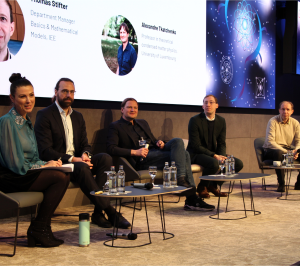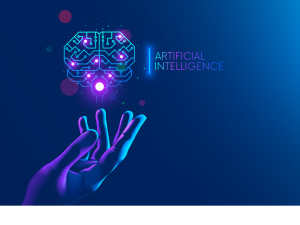Shaping Artificial Intelligence in Luxembourg: Uni.lu’s strategic contribution
As outlined in Luxembourg’s national AI Strategy, the country aims to establish itself as a leading hub for human-centred AI innovation—grounded in trust, driven by competitiveness, and shaped through collaboration and societal impact.
The University of Luxembourg plays a pivotal role in this national vision, actively contributing to three key pillars:
-
Human-centred ArtificiaI Intelligence
Ensuring that technological progress enhances the quality of life for all citizens.
-
Strengthened business competitiveness
Supporting the adoption of cutting-edge AI across industries through research, infrastructure and skills development.
-
World-class research and talent development
Fostering a dynamic interdisciplinary research ecosystem that attracts and nurtures both local and international talent.
Uni.lu enters the top 200–300 range of the Shanghai Ranking in the field of AI!

Artificial Intelligence Research at Uni.lu

Uni.lu’s commitment to AI research
The University of Luxembourg is home to a variety of research groups dedicated to the study and advancement of Artificial Intelligence. These groups have been actively involved in AI research for many years, contributing to the development of innovative solutions and technologies.
Our AI research is highly interdisciplinary, involving collaboration between experts from fields such as computer science, engineering, mathematics, law and social sciences. This collaborative approach allows us to address complex AI challenges and explore its applications in diverse areas.
Uni.lu is committed to fostering innovation and excellence in AI research, contributing valuable insights to the global AI community and preparing the next generation of AI professionals.
Our research groups and projects
-
20+Research groups
-
25+Research projects
Questions about Artificial Intelligence?
Everything you have always wondered about AI, explained
AI refers to the simulation of human intelligence in machines that are programmed to think like humans and mimic their actions. It encompasses various subfields such as machine learning, neural networks, and natural language processing.
AI works by using algorithms and models to process data, learn from it and make decisions or predictions. This involves data collection, preprocessing, machine learning, and continuous improvement through iterative processes.
There are concerns about AI’s potential risks, including job displacement, privacy issues, and the possibility of AI systems making harmful decisions. Ensuring ethical use and robust safety measures is crucial.
AI is used in numerous fields such as healthcare (diagnosis and treatment recommendations), education (classroom AI), finance (fraud detection, fintech, algorithmic trading), transportation (autonomous vehicles), customer service (chatbots) and many more.
AI can be categorized into three main types based on their capabilities:
- Artificial Narrow Intelligence (ANI): also known as “weak AI”, ANI is designed to perform a narrow task (e.g., facial recognition, internet searches or self-driving cars). It operates under a limited set of constraints and is the most common form of AI in use today.
- Artificial General Intelligence (AGI): Also known as “strong AI”, AGI refers to a machine that has the ability to understand, learn and apply knowledge across a broad range of tasks at a level comparable to a human being. AGI remains largely theoretical and is a major goal of AI research.
- Artificial Superintelligence (ASI): ASI is a hypothetical form of AI that surpasses human intelligence in all aspects, including creativity, problem-solving, and emotional intelligence. ASI is a topic of significant debate and speculation regarding its potential impact on society.
Latest AI news at Uni.lu
-

Agentic AI: Why Europe needs to rethink its approach to regulation
ResearchArtificial Intelligence, LawLearn more -

When choosing the wrong AI setup becomes a costly mistake
ResearchComputer Science & ICTLearn more -

Ready or not? Luxembourg steps into the quantum, AI and data era
OutreachArtificial Intelligence, Computer Science & ICT, High Performance Computing (HPC)Learn more
Want to dive deeper? Read our articles about AI!
-

How AI sees the past: artificial intelligence and collective memory
ExplainedArtificial intelligence, Digital methodsLearn more -

Artificial intelligence and history: an introduction
ExplainedArtificial intelligence, Digital hermeneutics, Digital toolsLearn more -

Artificial Intelligence in the service of History — and under its critical gaze

